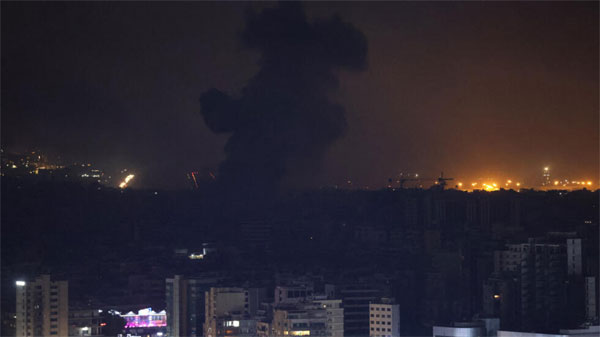Daijiworld Media Network - Jerusalem
Jerusalem, Nov 24: Israel announced on Sunday that it carried out a precision airstrike in Beirut’s southern suburbs, allegedly killing senior Hezbollah commander Haytham Ali Tabatabai — a figure Israeli officials described as one of the most influential leaders to be targeted since last year’s conflict.
According to the Israel Defence Forces (IDF), Tabatabai functioned as Hezbollah’s de facto chief of staff, second only to Secretary-General Naim Qassem within the Iran-backed group’s hierarchy. Hezbollah has so far issued no confirmation or response regarding his fate.

The strike took place in Dahieh, a heavily populated neighborhood considered a stronghold of Hezbollah and frequently cited by Israel as a center of the group’s operational activity. The IDF described Tabatabai as a “long-serving and central operative,” noting his involvement with Hezbollah dating back to the 1980s.
Over the years, he reportedly held multiple high-level military positions, including leadership of the elite Radwan Force, oversight of Hezbollah’s deployment in Syria, and command roles linked to operations along the Israel-Lebanon border. Israeli intelligence assessments have long regarded him as one of the group’s most pivotal strategists.
During the 2024 Israel-Hezbollah war, Tabatabai was appointed head of Hezbollah’s operations division, placing him at the core of strategic planning. The IDF claims he coordinated major battlefield decisions, directed force movements, and shaped combat policies as the conflict escalated. With several top Hezbollah figures killed during the fighting, he was believed to have taken on an even greater leadership role in the war’s final stages.
Following the ceasefire in November 2024, Tabatabai was formally named Hezbollah’s military chief of staff. The IDF asserts that he was responsible for rebuilding the group’s damaged command network, reorganizing its units, and strengthening its military capabilities.
Israeli officials are portraying Sunday’s strike as a significant operational success, arguing that the elimination of Tabatabai could disrupt Hezbollah’s long-term strategic planning and degrade its overall readiness.